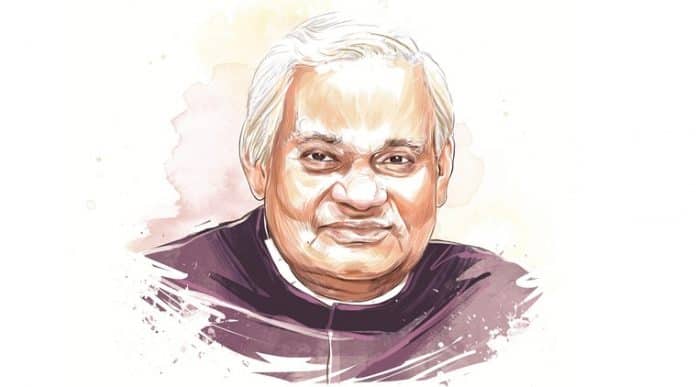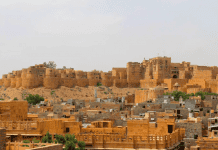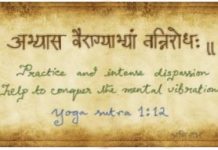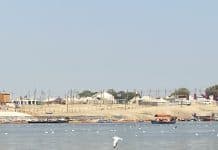
मेरे प्रभु!
मुझे इतनी ऊँचाई कभी मत देना
गैरों को गले न लगा सकूँ
इतनी रुखाई कभी मत देना।
My Lord,
Never let me climb so high
That I am unable to embrace another stranger,
Deliver me ever from such arrogance!
Shri Atal Bihari Vajpayee was an orator par excellence, a politician who defied all odds, and a humble human being. As is evident from the verse above, he was a magician whose poetry involved the use of simple words to deliver powerful messages. Life was his muse when it came to writing and his works ranged from commentaries on a rendezvous with death to a tear-jerking account of the Hiroshima tragedy. He was often quoted as saying that he was a poet by instinct and a politician by accident, but those who got to witness both of his avatars can vouch for his efficiency in both.
Born on 25th December 1924 in a humble middle-class family residing in Gwalior, Madhya Pradesh, Atal Bihari Vajpayee found an acquaintance in poetry by virtue of his father Shri Krishna Bihari Vajpayee, who was a teacher and a poet. He still had a long way to go when it came to achieving political success. He never wrote with the intention of being an illustrious poet and perhaps that modesty is what made his work outshine the rest. He often remarked, “One day you may become an ex-prime minister, but you will never become an ex-poet!”
While his political prowess was a thing to note, given the five decades he spent as an active politician, he understood the masses more than any of his contemporaries. He knew what the people really needed, and the people took to him as one of their own in every corner of the country. When Atal ji spoke, the entire nation listened in silence for only he could motivate them into owning their country and never backing down from their duties. The same is evident in the following lines,
प्राण–पण से करेंगे प्रतिकार
समर्पण की माँग अस्वीकार
दाँव पर सब कुछ लगा है, रुक नहीं सकते
टूट सकते हैं मगर हम झुक नहीं सकते
With every inch of our being, we will revolt
We shall deny every call to kneel down
Everything is at stake, there’s no option to stop now
We can break at this point, but we cannot bend now!
His words had such power that the whole nation stood united at the sound of his call. Some of the most famous lines he wrote were as follows,
बाधाएं आती हैं आएं
घिरें प्रलय की घोर घटाएं,
पांवों के नीचे अंगारे,
सिर पर बरसें यदि ज्वालाएं,
निज हाथों से हंसते–हंसते,
आग लगाकर जलना होगा।
कदम मिलाकर चलना होगा।
Let the adversities strike,
Let there be catastrophes dire
Let there be embers under our soles,
Let it shower flare,
With that fire in our hands,
Smiling, we have to burn
We have to move forward together!
An ardent devotee to his motherland, Atal Bihari Vajpayee chose to remain unmarried. He had such profound love for his people that he never felt like he was without family. For his unparalleled contributions to the country and its development he was awarded the Padma Vibhushan in 1992 and the Bharat Ratna — the highest civilian honor in India, in 2015. This love for his country can be seen in the verse below,
दुनिया का इतिहास पूछता, रोम कहाँ, यूनान कहाँ है?
घर–घर में शुभ अग्नि जलाता, वह उन्नत ईरान कहाँ है?
दीप बुझे पश्चिमी गगन के, व्याप्त हुआ बर्बर अँधियारा,
किन्तु चीरकर तम की छाती, चमका हिन्दुस्थान हमारा।
The history of the world asks, where is Rome, where is Greece?
The auspicious fire burning from house to house, where is that advanced Iran?
As the sun sets in the Western sky, As the barbarous darkness spreads,
Cutting through the depths of darkness is our Hindustan shining bright!
He often maintained a status quo on war shunning it and asking for the establishment of world peace. He would often say that if we really need to go to war, then it must be against poverty and ignorance instead of each other. It didn’t come as surprise that he would use his poetic brilliance as an appeal for neighbouring countries to maintain solidarity and trust in each other, as can be seen in the lines,
त्याग तेज तपबल से रक्षित यह स्वतन्त्रता,
दु:खी मनुजता के हित अर्पित यह स्वतन्त्रता।
इसे मिटाने की साजिश करने वालों से कह दो,
चिनगारी का खेल बुरा होता है ।
औरों के घर आग लगाने का जो सपना,
वो अपने ही घर में सदा खरा होता है।
Let us protect our freedom from the sharp blows of others
Let this freedom be our debt to humankind
Tell those who conspire to erase it
This sadist game is shameful
Their dreams of setting on fire the homes of others
Let them keep those dreams for their own
He had often said that he never wrote poems to rise up to poetic standards or benchmarks, he wrote them to document his life and learnings. Perhaps none of his works was as widely received as his take on death. In a piece that he wrote almost thirty years before his actual passing in August 2018, he contemplated what it would be like to meet Death face to face and how long would it really last.
जूझने का मेरा इरादा न था,
मोड़ पर मिलेंगे इसका वादा न था,
रास्ता रोक कर वह खड़ी हो गई,
यूं लगा जिंदगी से बड़ी हो गई।
मौत की उमर क्या है? दो पल भी नहीं,
जिंदगी सिलसिला, आज कल की नहीं।
मैं जी भर जिया, मैं मन से मरूं,
लौटकर आऊंगा, कूच से क्यों डरूं?
I had no plans to take her on, We had not agreed to meet at that curve,
Yet there she stood, blocking my path
Looming larger than life.
How long does death last? A moment, perhaps two —
Life is a sequence, beyond today and tomorrow.
I have lived to the full, I will die as I choose, I will return, I have no fear of letting go.
With his demise, the world lost an invaluable gem who lived a life that bore testament to his unwavering faith and nerves of steel. People across the globe hung their heads in remorse as the news of his death came out. He may have garnered immense respect for the work he did, but his true reward was the place he acquired in the hearts of billions of his people the world over with his magical words.


















